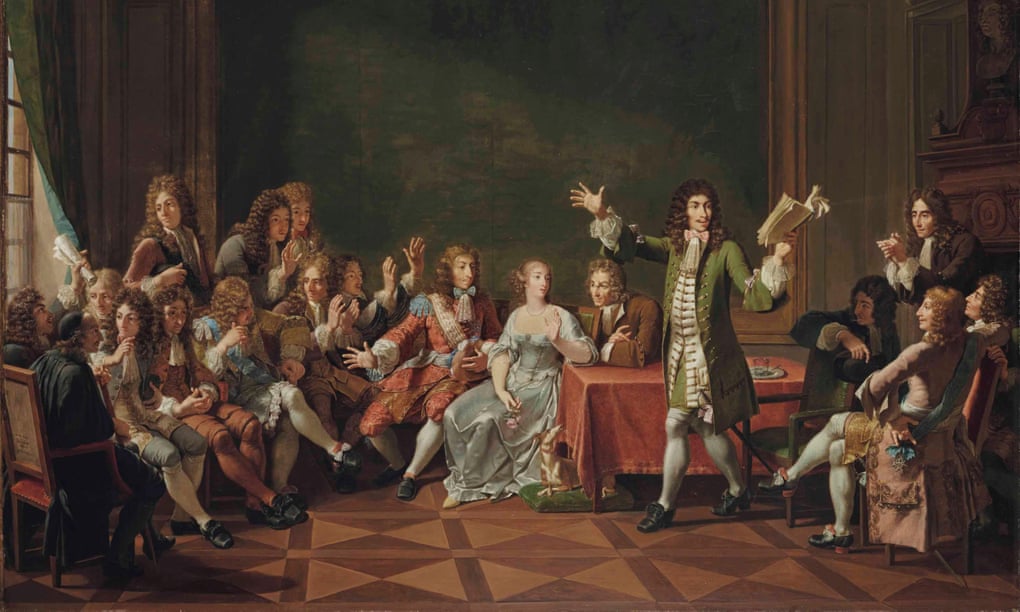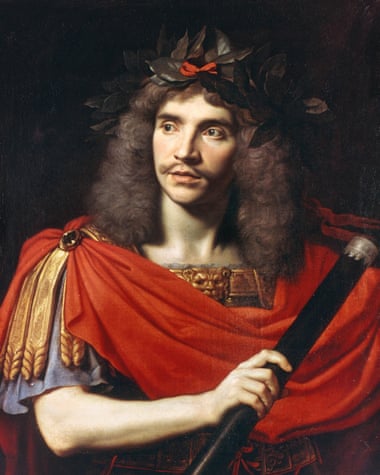From The Guardian:
French theatre is gearing up to pay tribute to one of its founding fathers: Molière, the 17th-century playwright whose biting comedies still form many French schoolchildren’s introduction to drama. On 15 January, 400 years after his baptism (the exact date of his birth is unknown), the venerable Comédie-Française company will open this anniversary year with the play that came perilously close to sinking Molière’s career: Tartuffe.
While the first version of the play got the approval of Louis XIV himself in 1664, its satire of Catholic zealots drew the ire of the Catholic church. At the time, accusations of impiety could send a playwright to the stake, and Tartuffe was swiftly forbidden. Yet Molière persisted, switching gears and rewriting the play to suggest that his target wasn’t religion or true believers – but rather the hypocrisy of those who feign virtue. (The word “tartuffe” came to describe such characters in life, too.)
It worked. By 1669, a new, longer version of the play – in five rather than three acts – was allowed and met with acclaim, and researchers now see Molière’s political and social acumen as a key factor in his rise to classic status, even before his death. “Molière was brilliant at this: he had this sense of opportunity, a gift for improvisation,” says Georges Forestier, a Molière specialist and professor emeritus at Sorbonne Université in Paris.
And this month, thanks to Forestier and his colleague Isabelle Grellet, the Comédie-Française’s audience will be able to experience the original Tartuffe again – or at least a text as close to it as possible. While the 1664 play didn’t survive, the duo used a method that Forestier calls “theatrical genetics” to recreate it. It relies on sources the era’s playwrights drew heavily on, such as commedia dell’arte scenarios and existing short stories, to piece together a play’s original plot.
The result is a tighter, more streamlined Tartuffe, focused on the eponymous antihero – a religious beggar who is welcomed into a well-to-do family – and his hosts, Orgon and his wife Elmire. Some characters, such as the young beau Valère, have disappeared entirely along with the second and fifth acts, identified as later additions.
The prominent Belgian director Ivo van Hove will direct what is set to be a curious event – a “new” Molière play at the House of Molière, as the Comédie-Française has long been known. The opening night will be relayed live in cinemas in seven countries, and marks the start of a yearlong celebration for the French company, which was born of the fusion of Molière’s troupe and another, in 1680: its entire 2022 lineup will be dedicated to Molière. (Read more.)



















No comments:
Post a Comment